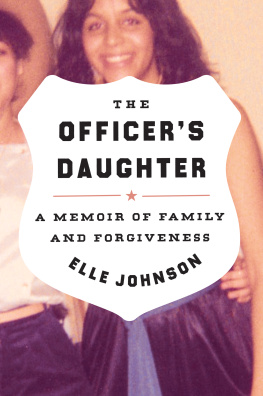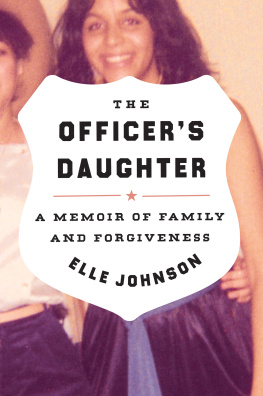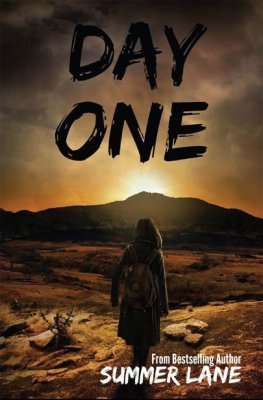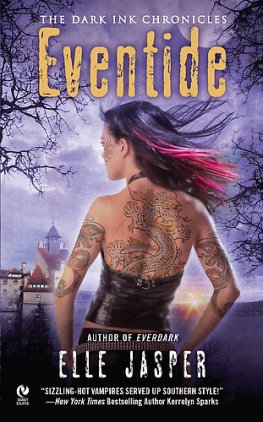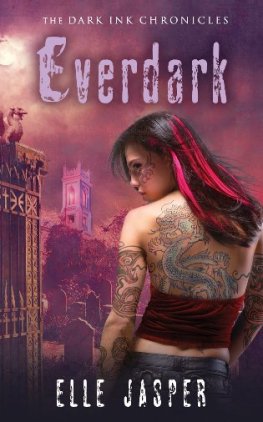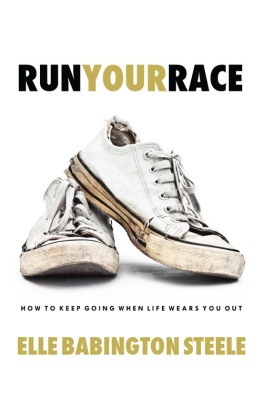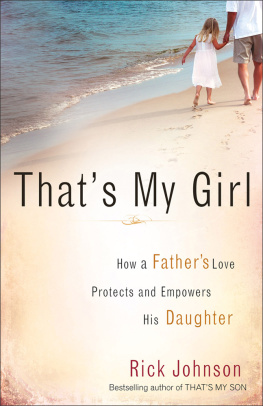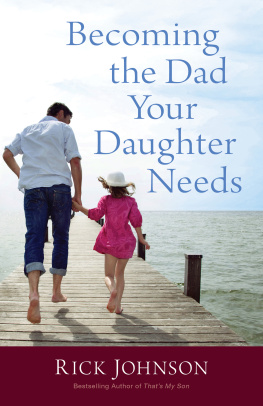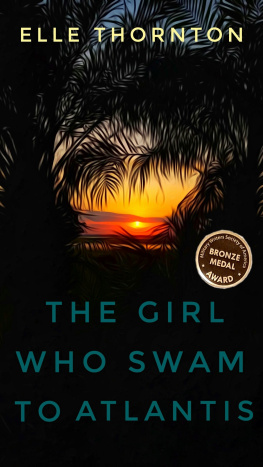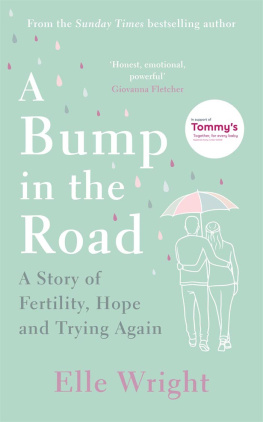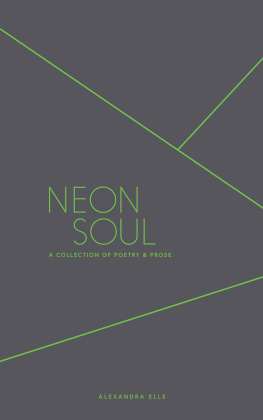Elle Johnson - The Officers Daughter
Here you can read online Elle Johnson - The Officers Daughter full text of the book (entire story) in english for free. Download pdf and epub, get meaning, cover and reviews about this ebook. year: 2020, publisher: Harper, genre: Non-fiction. Description of the work, (preface) as well as reviews are available. Best literature library LitArk.com created for fans of good reading and offers a wide selection of genres:
Romance novel
Science fiction
Adventure
Detective
Science
History
Home and family
Prose
Art
Politics
Computer
Non-fiction
Religion
Business
Children
Humor
Choose a favorite category and find really read worthwhile books. Enjoy immersion in the world of imagination, feel the emotions of the characters or learn something new for yourself, make an fascinating discovery.
- Book:The Officers Daughter
- Author:
- Publisher:Harper
- Genre:
- Year:2020
- Rating:4 / 5
- Favourites:Add to favourites
- Your mark:
- 80
- 1
- 2
- 3
- 4
- 5
The Officers Daughter: summary, description and annotation
We offer to read an annotation, description, summary or preface (depends on what the author of the book "The Officers Daughter" wrote himself). If you haven't found the necessary information about the book — write in the comments, we will try to find it.
The Officers Daughter — read online for free the complete book (whole text) full work
Below is the text of the book, divided by pages. System saving the place of the last page read, allows you to conveniently read the book "The Officers Daughter" online for free, without having to search again every time where you left off. Put a bookmark, and you can go to the page where you finished reading at any time.
Font size:
Interval:
Bookmark:
For my mother, who didnt want me to write this.
Forgive me.
W hen I was sixteen, my sixteen-year-old cousin, Karen, had her face blown off at point-blank range by a sawed-off shotgun in a robbery gone awry at a local Burger King in the Bronx. It was early Saturday morning, April 4, 1981. Karens father was a homicide detective. My father was a parole officer. They joined more than fifty NYPD officers and the FBI to help track down the killers in a cross-country manhunt that lasted two weeks. For two weeks Karens murder was covered by the local New York news. For two weeks I was spinning from the shock. This was my loss of innocence, the moment in my childhood when I understood that the world didnt work the way my parents said it did. After Karen was killed, I questioned everything and everyoneespecially my father.
More than three decades later, I hadnt stopped thinking about Karens murder. Though I had left the middle-class Black enclave of Hollis, Queens, where I grew up and relocated to Los Angeles, the trauma of that event followed me. I thought about it on her birthday and mine. At Thanksgiving and Christmas. On the anniversaries of the day she was killed and the day the killers were finally caught. And on the day Karen was buried, which also happened to be my fathers birthday. The events of Karens murder played in my mind on an endless loop, like an old record on repeat. I retold the story so frequently that I had developed a script I could recite easily, without betraying the depth of emotion buried beneath the fluid, familiar phrasing: When I was sixteen, my sixteen-year-old cousin, Karen, had her face blown off at point-blank range by a sawed-off shotgun in a robbery gone awry at a local Burger King in the Bronx.
One morning in September 2014, I got up early to write. I was sitting in my house in LA, a cozy Spanish-style bungalow built in 1926, a time when my neighborhood was still orange groves connected by dirt roads. The front was all east-facing french doors and arched windows that let in brilliant morning light. I was reading emails. Procrastinating before getting to work, when I saw a message from my cousin Warren, Karens older brother.
Karens killer was up for parole.
Warren asked me to write a letter encouraging the parole board not to set his sisters killer free. Warren had never asked me to do anything like this before, so his email took me by surprise.
I had seen Warren two months earlier at a family gathering back in New York. He hadnt mentioned the upcoming parole hearing. I thought maybe the nature of the occasion had precluded such talk. It was a memorial service for my favorite uncle, who was eighty-two years old when he died. Rather than mourning a death, we were celebrating a full, complex, and rewarding life. Warren was at the memorial along with his younger brother, Geoffrey, and their mother, my aunt Barbara. Every time I saw the Marsh family I thought of Karen. The family resemblance was so stronglight skin, light eyes, bright, open facesthat I could easily imagine what Karen would have looked like today. But we never talked about Karen or her murder. It was as though she had never existed.
That night, as we caught up with small talk and told tall tales about our dearly departed uncle and the family, Karens absence lingered like a rainstorm. When I breathed in, misty images of Karen and me came to mind: whispering about boys; giggling as we sneaked extra sweets out of Grandmas crystal candy dish; wearing the matching cartoon geisha nightgowns shed given me at my birthday slumber party, then braiding our hair the same way to look like twins. But then I flashed on a photographthe black-and-white close-up of a smiling Karen from her funeral program. I wanted to ask Warren and Aunt Barbara if they remembered it the way I did. I wanted to know how they had carried the weight of Karens murder through the years. I wanted to guess what Karens life would have been like had she lived: happily married with children, like her brothers; divorced and dating, following her dreams, like me. I wondered if Warren and Aunt Barbara knew that Karens murder was a pivotal event that had shaped my adolescent life and beyond.
Back home in Los Angeles, I pulled a box of keepsakes from the closet and shuffled through it, looking for mementos of Karen. There were only two. The first was a copy of her funeral program. The picture of Karen showed her younger than I remembered. Her hair was pulled back away from her face. She looked like she was in elementary school. The second memento was an eight-by-ten color photo of Karen and me at my sweet sixteen.
In the photograph, we are standing next to each other. Her arm is around my waist. My hand clutches her shoulder like a needy claw. She wears velvet pants in her favorite colorpurplea satiny cream-colored rodeo shirt, and a beige ten-gallon hat. Her curly dark bangs cover her forehead like wild mushrooms sprouting in a meadow. She has a tomboys cocky swagger.
My shoulders are stooped and remind me of how uncomfortable I was in my own skin back then. I wear a black polyester jumpsuit with a halter top held up by spaghetti straps. The satiny fabric drapes around my waist and tapers at the ankles. A turquoise sash hangs awkwardly from my hips. My face has the look of ecstatic exhaustion. I remember how happy I was that night.
I had never heard of a sweet sixteen before my junior year and didnt know I wanted one until Karen and all the girls in my class started having them. My sweet sixteen was held in the community room of a church off Queens Boulevard and was catered by my fathers friend who was a fireman and knew that the least expensive way to feed a bunch of teenagers was with twelve-foot-long sub sandwiches and a vanilla sheet cake slathered with buttercream icing. My mother found a DJ, who played everything from Afrika Bambaataas Planet Rock to Rock Lobster by the B-52s. I invited everyone in my class and danced until my long, straightened hair frizzed up into loose curls and the turquoise sash around my waist darkened with sweat. I spent the evening with one eye on the door, waiting for Karen to show up.
I desperately wanted Karen to be there. I wanted everyone to see me with my beautiful, cool cousin, who would make me cooler by association. The party was almost over when she arrived with Aunt Barbara. Karens cowboy hat drew looks; the sparkle of her green eyes got people who were ready to leave back on the dance floor. When she stopped to take a break, I stood with her on the sidelines, talking and laughing, until Cameron sidled up to us. Cameron was the first boy in three years to have asked me on a date. Hed taken me out on the bus, made out with me behind a mortuary, then dumped me over the phone, all in the same weekend. In the ultimate show of teenage-girl insecurity, Id invited him to my party. He flirted shamelessly with Karen, but Karen made a point of ignoring him to talk to me. Undeterred, Cameron whispered in my ear, Im in love with your cousin. You think shed go out with me? Instead of anger, disappointment, or envy, I felt pride. When I told Karen what Cameron had said, she said, Never, threw her arm around my waist, and pulled me away. Then my mother took our picture.
Were both smiling. Karens lips are pressed closed, her cheeks are rounded and high. She looks delighted with herself, mischievouslike she has a secret. Looking at the photo, I remember that I had a secret, too. I was sure that from then on Karen and I were going to be best friends.
That was the last time I saw her. She was killed three months later.
I TOOK THE PICTURE of Karen and me at my sweet sixteen and tacked it up next to the email from my cousin Warren on the bulletin board above my desk. Unsettled, I wandered to the front of my house. It was still dark out. The blue blush of first light had not yet edged out the darkness. Everything was black. Usually this stillness before dawn was my favorite time of day. My mind was open, my thoughts unburdened. I felt like I was stealing time. I took comfort in knowing that the world outside my windows was still shrouded by night. Growing up, I was afraid of the dark, but as I became an adult, it seemed the darkness protected me from a harsh light.
Font size:
Interval:
Bookmark:
Similar books «The Officers Daughter»
Look at similar books to The Officers Daughter. We have selected literature similar in name and meaning in the hope of providing readers with more options to find new, interesting, not yet read works.
Discussion, reviews of the book The Officers Daughter and just readers' own opinions. Leave your comments, write what you think about the work, its meaning or the main characters. Specify what exactly you liked and what you didn't like, and why you think so.

